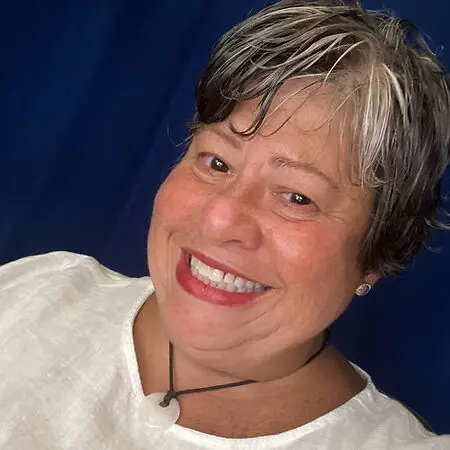Ivelisse M Velez

• Springfield College, Regional and Online- Bachelor's
• • Shining Award, National Hispanic Council of the Deaf and Hard of Hearing (1994)
• Leadership Award, Northeast Network of Massachusetts (1994)
• Outstanding Advocate Award, ACCESS NOW Coalition (1995)
• Ten Outstanding Youth Leadership Award, Boston Jaycees (1995)
• Laurent Clerc Service Award, Massachusetts State Association of the Deaf (1997)
• Women’s Philanthropy Award, Women’s Philanthropy – Boston (1998)
• Public Service Award, Secretary of the State of Connecticut (2003)
• Hispanic Heritage Award, Telemundo – Boston (2005)
• Deaf Community Service Award, FSW (2007)
• Staff Merit Award for Character, The Learning Center for the Deaf (2014)
• BJ Wood Trailblazer Award, Massachusetts Commission for the Deaf & HOH (2021)
• The Carolyn Ball Award, Massachusetts State Association of the Deaf (2021, 2023)
• • Founder/Secretary, New England Latinos Deaf Association (2018 - Present)
• Founder/Board Member, Boston Latino Deaf Association (1994 - 2017)
• Founder/Charter Board Member, SOUND OFF Theatre (2001 - Present)
• Vice President/Board Member, Massachusetts State Association of the Deaf (1988 - Present)
• Founder/President, National Hispanic Council of the Deaf and HOH (1994 - 2015)
• Member, National Association of the Deaf (1988 - Present)
• Board of Directors/Member, Council de Manos (2015 - Present)
• Board of Directors, Disability Policy Consortium (2022 - Present)
• Member, Manos o Manos (2023 - Present)
What do you attribute your success to?
My success is rooted in an intersection of resilience, cultural identity, and relational leadership. Growing up as a Deaf Puerto Rican woman in underrepresented systems cultivated adaptive problem-solving skills and a deep sense of social responsibility. I have leveraged both lived experience and professional expertise to foster culturally responsive leadership, intentionally centering equity and inclusion as guiding principles.
What’s the best career advice you’ve ever received?
“Lead with authenticity, not assimilation.” This guidance affirmed that true leadership is not about conforming to dominant norms, but about aligning professional practice with personal values. By integrating self-awareness, cultural humility, and reflective practice, I have been able to maintain credibility and influence across diverse contexts.
What advice would you give to young women entering your industry?
Cultivate both competence and confidence. Seek mentorship, but also develop a self-advocacy framework that empowers you to negotiate boundaries, articulate needs, and sustain your well-being. Remember that your cultural and linguistic identity is an asset, not an obstacle, and use it to inform and strengthen your leadership presence.
What are the biggest challenges or opportunities in your field right now?
The field faces persistent challenges around systemic inequities, language deprivation, and the scarcity of Deaf leaders from historically marginalized backgrounds. However, these challenges present opportunities to reimagine service delivery models, integrate culturally responsive leadership frameworks, and expand pipelines for Deaf professionals—particularly in human services and mental health. The integration of technology with culturally competent practice holds significant promise for transformative change.
What values are most important to you in your work and personal life?
Integrity, cultural reciprocity, and empowerment. I believe leadership is a moral practice, one that requires alignment between one’s actions and core values. My professional and personal ethos are guided by the belief that sustainable change happens when communities are not just served, but also equipped and empowered to lead themselves.